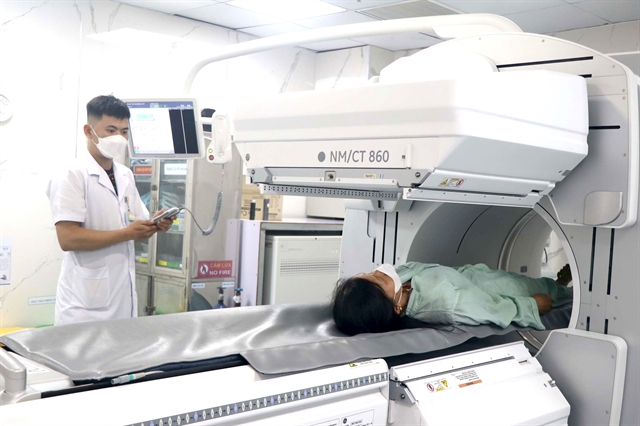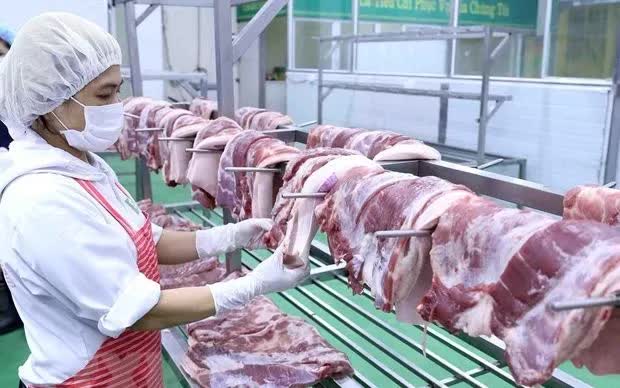 Society
Society

 |
| A SPECT/CT scanner is used at Nghệ An Oncology Hospital for cancer detection and treatment. — VNA/VNS Photo Trịnh Duy Hưng |
HÀ NỘI — More than half of Vietnamese believe they face a risk of cancer, yet just 34 per cent have ever undergone screening, revealing a worrying gap between awareness and action.
A recent survey by market research and data analytics firm YouGov, which gathered responses from 6,000 people across Southeast Asia, found that 84 per cent of Vietnamese agree early cancer detection improves treatment outcomes. Despite this, only a third have been screened, and just 13 per cent of those had specialised examinations.
When asked why they avoided screening, 35 per cent said they felt it was unnecessary, 22 per cent cited high costs and another 22 per cent feared a cancer diagnosis.
Most respondents were familiar with traditional treatments such as surgery, chemotherapy and radiation therapy. However, modern methods like personalised treatment, immunotherapy and image-guided therapy remain largely unknown.
Although 74 per cent knew about post-treatment care services, nearly 48 per cent lacked detailed knowledge, highlighting low awareness of comprehensive cancer care.
Meanwhile, 54 per cent expressed trust in advanced technologies including artificial intelligence and genetic testing. Many hope digital transformation in healthcare will improve cancer care, provided transparency, monitoring and data security are assured.
People want technology to serve as a supporting tool rather than completely replacing doctors, the YouGov survey noted.
Vice director of the National Institute for Cancer Control Associate Professor Dr Trần Thanh Hương believes this result demonstrates a common misconception among the public.
“Many people misunderstand and think that screening is only for those who already show symptoms, whereas it is actually a method to detect cancer at its earliest stage when the body is still in good health conditions,” she told Sức khỏe & Đời sống (Health & Life) newspaper.
According to data from the Global Cancer Observatory (GLOBOCAN) in 2022, Việt Nam recorded over 180,000 new cancer cases and 120,000 cancer-related deaths.
Approximately 100,000 people in Việt Nam are living with cancer. The country ranks 20th in Asia for new cancer cases and 101st globally.
To help people better understand cancer screening, diagnosis and treatment, Dr Trần Thanh Hương emphasised the importance of enhancing public education on the disease.
Messages should be easy to understand and delivered in an accessible manner, she said, adding that campaigns featuring popular personalities could also be leveraged to create a stronger impact within communities.
Additionally, capacity building and training for grassroots healthcare workers, especially family doctors, play a crucial role in cancer prevention and early detection.
Treatment costs are another critical issue, Hương noted. Experts have suggested adopting optimal cost-effective treatment methods suited to Việt Nam’s economic context, ensuring patients’ equitable and sustainable access to healthcare services.
There are now many new medications, particularly immunotherapy drugs, for cancer treatment, she said. However, most of these drugs are not covered by the national health insurance.
To assist patients, several programmes providing cancer treatment drugs have been deployed, with thousands of participants nationwide. Additionally, patients can access new treatment methods by joining clinical trials.
Along with medication support programmes and clinical trials, health insurance plays a crucial role in treatment. For a drug to be covered by the national health insurance, thorough evaluations of its effectiveness and cost are required. However, due to the high costs of cancer treatment, the insurance budget for these drugs is always under strain. — VNS




